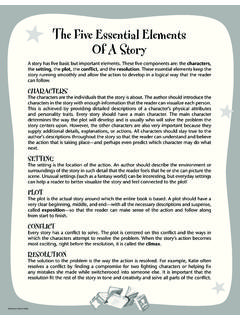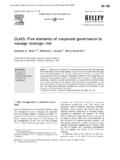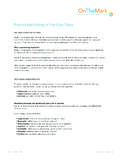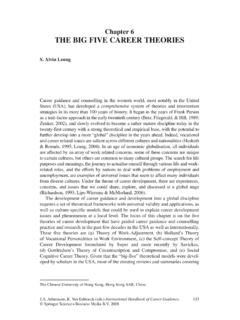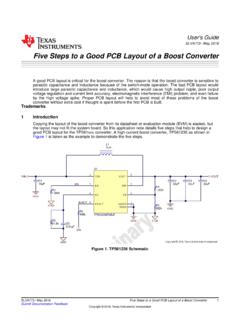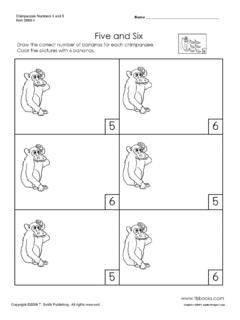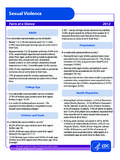Transcription of Five Challenges in Science Education - tcse-k12.org
1 five Challenges in Science EducationDavid D. Thornburg, PhDExecutive Director, Thornburg Center for Space launch of Sputnik on October 4, 1957 triggered my nascent passion in tinkering into a full-fledged desire to become a scientist. My academic performance was spotty up until that time, having been identified as mildly retarded by one well-intentioned counselor in the days before ADD was recognized. But, with Sputnik, my apparent ADD vanished as I spent hours thinking about what it would take and what it would be like to spend a career exploring new frontiers of knowledge.
2 For a fourteen-year-old growing up in Chicago, this was a great time to be alive. We had a splendid museum of Science and industry, a planetarium, an aquarium, and a natural history museum. We were surrounded with resources to support any interest that young people had in the November of that year, President Eisenhower announced that our public educational system was in severe need of a complete overhaul if we were ever to produce enough scientists and engineers to keep up with the Soviets. By the time I started high school, the PSSC Science curriculum was in place, and I found the educational climate needed to foster and develop my skills.
3 In some ways, those were the golden years of Education for we hear a lot about educational reform, but our quest for accountability has resulted in many cases in the abandonment of quality educational practices and, in their place, we see what appears to some as perpetual testing in the midst of a curriculum devoid of excitement and the uncertainty of genuine exploration. But, as President Kennedy once said 1, Our Creative Commons copyright, c, by Thornburg Center for Space Exploration, 2009. Some Rights document can be posted and shared freely in its entirety.
4 No other rights are 1problems are man-made, therefore they may be solved by man. And man can be as big as he wants. No problem of human destiny is beyond human beings. Looking at our current economic Challenges , coupled with the loss of creative scientific and engineering work to other nations, it seems overdue to take a hard look at some of the Challenges facing Science Education in the US, and to suggest ways these Challenges might be addressed. As Intel's Craig Barrett says2, Anyone .. from the United States who says that the Chinese or Indians are not entrepreneurial, not creative, that they don't want to rival the United States in business startups has not been to India or China.
5 five of these Challenges will be explored in the rest of this short document. These Challenges are by no means the only ones facing us you can come up with many others but they provide a good starting point for conversations around this truly important Shortage of Qualified TeachersOne of the highlights of the much-maligned NCLB act is the mandate that each student will have access to highly qualified teachers. And yet, in the areas of math and Science , such teachers seem to be in short supply. This challenge has become so severe that some districts are importing qualified teachers from other nations for example, schools in Wichita, KS are securing H1-B visas for Filipino teachers who come for three-year assignments (which can be extended) 3 This experiment has worked well, but it is unclear if it has bought enough time for the domestic teaching force to add enough qualified Science teachers to the pool to meet the needs of America's has been written on this topic.
6 For example, the NAP report Rising Above the Gathering Storm 4, explores this challenge in depth. The task is complex, but the penalty for inaction is to have even more teachers working outside their specialties. The following table from this report shows how big the challenge is:Students Taught by Teachers with No Major or Certification in the Subject Taught, 1999-2000 Discipline Grades 5 8 Grades 9 12 English 58% 30%Mathematics 69% 31%Physical Science 93% 63%Biology life sciences 45%Chemistry 61%Physics 67%Creative Commons copyright, c, by Thornburg Center for Space Exploration, 2009.
7 Some Rights document can be posted and shared freely in its entirety. No other rights are 2In a followup document, Rising Above the Gathering Storm Two Years Later2, the authors state The strongest influence on the performance of students in a class is whether they have a teacher with a bechelor's degree in the subject they teach. Getting students through college in the sciences and engineering is a challenge that affects the pool of qualified teachers. In the area of engineering, for example, it appears that up to 50% of engineering undergrads in some schools change majors by the end of their sophomore year 5.
8 The number of US college graduates in physics in 1956, the last full year before the launch of Sputnik, was twice the number of graduates in 2004. The need to encourage teachers to work in the sciences must cut across all those interested in a future in Education . No group can be left out in our quest to address this back to my own experience as a student, I was lucky enough to have Science teachers in high school who had their primary degrees in the sciences they taught and, in some cases, had worked in the field for years before becoming about Science as a vibrant human activity Years ago, in my presentations, I would ask teachers to tell me the names of scientists.
9 In general, the names they gave were of dead white men. Sometimes Madame Curie's name would appear, and Watson and Crick would be mentioned as living examples of famous scientists (at the time). But the idea of Science being a vibrant field with participants of all genders and heritage was not reflected in most of the answers I received. It is as if we taught students about Science without the scientists!Also, I encountered many people who knew something about Science , but not about why anyone would choose to spend his or her life exploring questions in a field that might not yield definitive answers in their lifetime.
10 I even saw this in my own house when, shortly after my marriage, my younger step-daughter (who was in high school at the time) came to breakfast and saw a fractal pattern on my computer screen that was a result of a forecasting model I was doing for a client. The graph was quite pretty, and she wondered what it was. I told her it was a mathematical pattern. She has a strong artistic bent and shared that she never knew mathematical expressions could be beautiful. To her math was just calculations not the exploration of deep she had studied math in school, but she didn't realize that there were people who explored deep mathematical ideas outside the classroom and that some of them did it just for fun!
